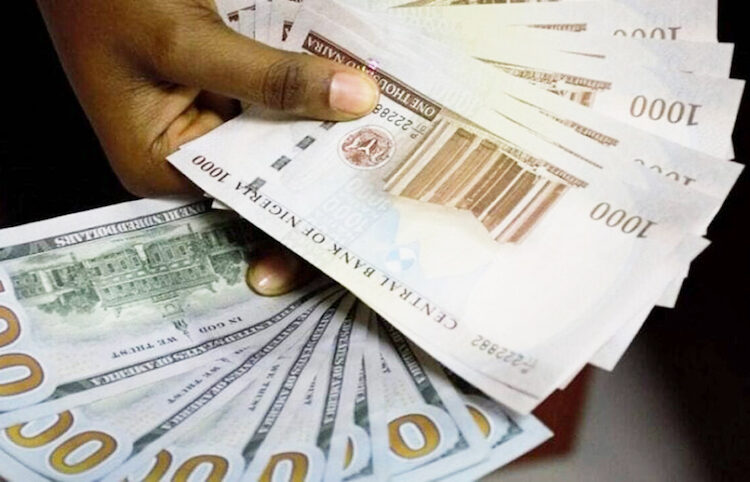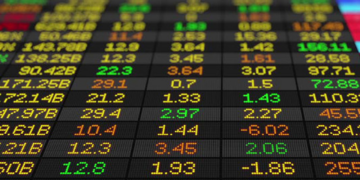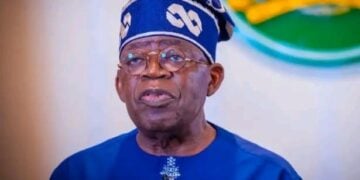The domestic currency traded at N1,653 per US dollar at the close of trading on Tuesday on the official NAFEM market and N1,725 per dollar in the parallel market as of October 23, 2024. This marks a drop of N5 in the parallel market compared to previous rates.
However, the International Monetary Fund (IMF) said the clearing of the foreign exchange backlog by the Central Bank of Nigeria (CBN) alongside the benchmark interest rate hikes has helped the naira to stabilise.
Also, the 30-days moving average of the external reserves of the country rose to $39.156 billion as at Monday, October 21, 2024.
The value of the naira had continued to depreciate with the gap between the official rate and the black market further widening.
At the close of business on Tuesday, the naira was selling at N1,653.02 to the dollar at the Nigeria Autonomous Foreign Exchange Market (NAFEM) a 3.1 per cent or N49.86 depreciation compared to Monday’s closing exchange rate of N1,603.16 to the greenback.
This brings the gap between the official and black market rates to nearly N100 as the black market closed at N1,725 to the dollar. This is however still stronger than the lowest level the naira had fallen to. In February this year, the value of the naira had plunged to N1,900 to the dollar, sparking fears and speculations that the currency could hit N2000 to the dollar before the end of this year.
According to the Fiscal Monitor report of the IMF just released, the policy actions of the apex bank had resulted in positive developments. “In Nigeria, rate hikes and the clearing of overdue domestic central bank foreign exchange obligations have helped the naira show more signs of stability,” the report stated.
The CBN governor, Olayemi Cardoso, had earlier this year cleared up to $7 billion of backlog of amidst other policies put in place to manage the foreign exchange quagmire of the country. The Monetary Policy Committee (MPC) of the apex bank had also continued to raise benchmark interest rates to manage the rising inflation in the country.
At the last meeting held in September, the committee had raised the Monetary Policy Rate (MPR) by 50 basis points (bps) to 27.25 per cent from 26.75 per cent. The hike brings the total rate increase so far in 2024 to 850 bps.
The CBN had also, as part of efforts to curb speculation as well as eliminate price distortions in the foreign exchange market, introduced the Electronic Foreign Exchange Matching System (EFEMS), for Foreign Exchange (FX) transactions in the Nigerian Foreign Exchange Market (NFEM).
The EFEMS which will be implemented in the first week of December this year, is already being test-run and dealers are expected to start compiling reports from this month.
According to the circular issued by the Director, Financial Markets of the CBN, Dr Omolaral Duke to all authorised dealers, all foreign exchange transactions in the interbank foreign exchange market are to be conducted on the Electronic Foreign Exchange Matching System approved by the CBN where transactions will be reflected immediately .
“The new system is expected to enhance governance, transparency and facilitate a market- driven exchange rate that will be accessible to the public. This development is expected to reduce speculative activities, eliminate market distortions and give the CBN improved oversight capabilities to effectively regulate the market.
“The CBN will publish real time prices and buy/sell orders data from the system, and in collaboration with the Financial Markets Dealers Association (FMDA), publish the rules for the EFEMS. The Nigerian FX Code and revised Market Operating Guidelines for the Nigeria Foreign Exchange Market will also provide guidance to market participants.





